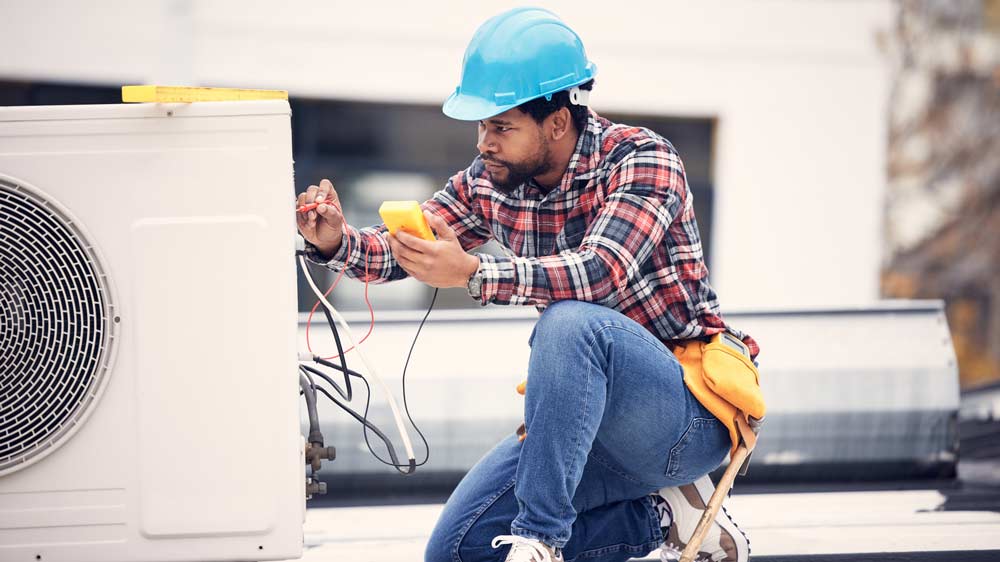Apr 17
Efficient Climate Control Solutions: A Comprehensive Guide to Commercial HVAC System Maintenance in 2024
READ TIME: 4 MIN.

In the dynamic world of commercial buildings, the importance of maintaining an efficient and reliable HVAC (Heating, Ventilation, and Air Conditioning) system cannot be overstated. As we advance into 2024, the focus on sustainability, energy efficiency, and indoor air quality has prompted a significant evolution in HVAC maintenance strategies.
This guide aims to equip facility managers, building owners, and maintenance teams with the knowledge and best practices necessary to ensure their HVAC systems operate at peak efficiency, thereby reducing operational costs, extending the lifespan of equipment, and enhancing occupant comfort.
Understanding HVAC System Components and Functions
Before delving into maintenance strategies, it's crucial to understand the key components of commercial HVAC systems and their functions. A typical HVAC system comprises an outdoor unit (housing the compressor and condenser), an indoor unit (containing the evaporator and fan), ductwork, filters, and a thermostat.
Regular Maintenance and Inspection
Regular maintenance and inspection are paramount for the longevity and efficiency of commercial HVAC systems. A well-structured maintenance plan should include the following components:
During these inspections, if any significant issues are identified that cannot be resolved through routine maintenance, it's essential to seek professional commercial HVAC repair services. Timely repairs are crucial to prevent minor problems from escalating into major system failures, which can result in substantial downtime and increased operational costs. Professional HVAC technicians have the expertise to diagnose and fix complex issues, ensuring that your system operates efficiently and reliably.
Adhering to a regular maintenance schedule prevents minor issues from escalating into major problems, thereby avoiding unexpected downtime and costly repairs.
Energy Efficiency and Cost Reduction Strategies
Enhancing energy efficiency is a key goal of modern HVAC maintenance programs. Implementing the following strategies can significantly reduce energy consumption and operational costs:
Indoor Air Quality and Health
Maintaining high indoor air quality (IAQ) is essential for the health and comfort of building occupants. Poor IAQ can lead to health issues, decreased productivity, and increased absenteeism. To improve IAQ, focus on the following:
Sustainability Practices
Sustainability is a growing concern in the HVAC industry. Implementing sustainable practices not only benefits the environment but can also lead to cost savings and improved system performance. Consider the following practices:
Conclusion
In 2024, the emphasis on efficient, sustainable, and health-conscious HVAC maintenance strategies is more critical than ever. By understanding the components and functions of HVAC systems, adhering to a regular maintenance schedule, employing energy efficiency and cost reduction strategies, prioritizing indoor air quality, and adopting sustainable practices, commercial building owners and facility managers can ensure their HVAC systems provide a comfortable, safe, and efficient environment for all occupants.
Staying informed and proactive in HVAC maintenance not only enhances operational efficiency but also contributes to the broader goals of environmental sustainability and occupant well-being.




